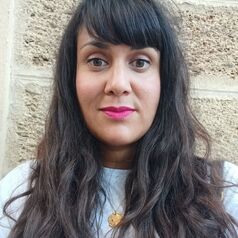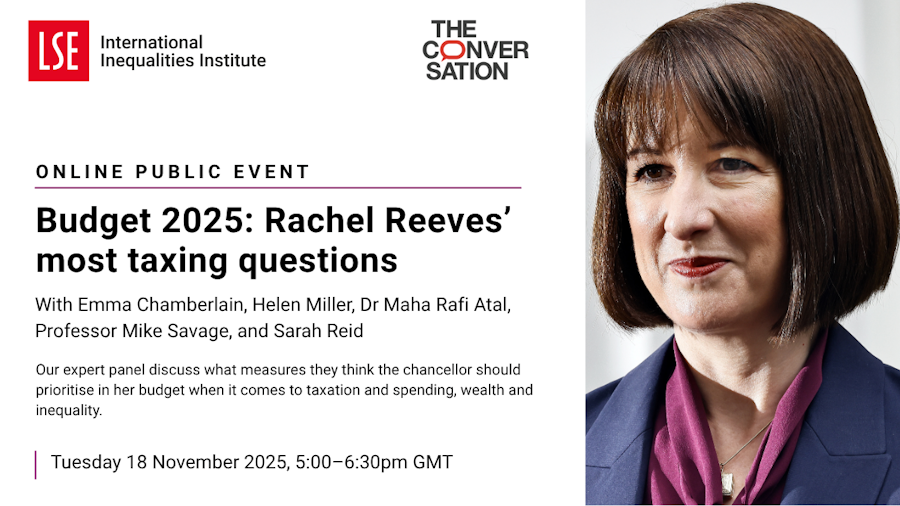|
Victorian kennel clubs are often credited with creating the modern dog through selective breeding – unleashing the diversity in breeds we see today. But new research suggests they were only part of a much longer story.
By analysing 643 skulls of ancient and modern dogs and wolves, researchers discovered that dogs were already remarkably diverse more than 10,000 years ago. The variation in skull shapes during the Mesolithic period (9,000 to 4,000BC) was already half the total variation we see in modern breeds.
Plus, scientists made five British men yell: “That’s my pasty!” at seagulls, and the findings prove your angry tone really does make a difference.
And with flu season starting a month early this year and driven by a more transmissible strain, now’s the time to get vaccinated if you haven’t already – here’s what’s going on.
|

|
Miriam Frankel
Senior Science + Technology Editor
|
|

cynoclub/Shutterstock
Carly Ameen, University of Exeter; Allowen Evin, Université de Montpellier
Dogs were already remarkably diverse more than 10,000 years ago, long before kennel clubs and pedigrees.
|

Stephen A. Waycott/Shutterstock
Neeltje Boogert, University of Exeter
This is one of the few times shouting might actually help.
|

The UK’s flu season is already well underway.
simona pilolla 2/ Shutterstock
Conor Meehan, Nottingham Trent University
Flu season has started a month earlier than last year.
|
Health
|
-
Adam Taylor, Lancaster University
We swallow billions of pills each year. Most pass unnoticed. Others cause a painful and surprisingly common condition called pill-induced oesophagitis.
-
Siobhan Mclernon, London South Bank University
Women are more likely to have a stroke – and more likely to be misdiagnosed. Hormones, pregnancy and medical bias are part of the reason.
|
|
Arts + Culture
|
-
Andrew White, King's College London
The exodus reflects a general concern that major tech companies are too cosy with the Trump administration.
-
Lynn Hilditch, Liverpool Hope University
Although originally conceived in Europe, art deco came to define American interwar prosperity, optimism and luxury.
|
|
Politics + Society
|
-
Tom Felle, University of Galway
In today’s febrile information climate, it is fair to ask whether the duty to remain impartial remains fit for purpose.
-
Keetie Roelen, The Open University
Lack of public transport and limited availability of schools, childcare facilities or GP surgeries are making life harder in new developments.
|
|
Business + Economy
|
-
Jasper Kenter, Aberystwyth University
Traditional economics can’t respond to global crises like inequality and climate change.
-
Akhil Bhardwaj, University of Bath
Have the big firms become too big to fail?
|
|
Education
|
-
Emily MacLeod, UCL
The reasons why people do not become teachers are not the same reasons why people leave the classroom.
-
Laura Nicole Rees-Davies, Cardiff Metropolitan University
Coaching may help teachers manage burnout and stay in the job. But only if schools get the training and time right.
|
|
World
|
-
Veronika Hinman, University of Portsmouth
Facing increasing pressure on the front lines, Kyiv is hoping that its European allies can quickly reach an agreement of billions of Euros in funding.
-
Robert Dover, University of Hull
Is this justice or retribution?
-
Stefan Wolff, University of Birmingham; Tetyana Malyarenko, National University Odesa Law Academy
Operation Midas, a Ukrainian anti-corruption probe, has uncovered what appears to be damning evidence against some of the Ukrainian president’s close allies.
-
Bamo Nouri, City St George's, University of London
The vote revealed the depth of Iraq’s political fatigue and the power of dependency politics.
|
|
Environment
|
-
Jess Davies, Lancaster University
From Paris in 2015 to Belem in Brazil in 2025, soil is slowly becoming part of climate policy but more can be done.
-
John Schofield, University of York; Flinders University; Fay Couceiro, University of Portsmouth
Like the bronze and iron ages, plastic is defining an archaeological era.
|
|
Podcasts
|
-
Gemma Ware, The Conversation
Climate scientist Nadir Jeevanjee speaks on The Conversation Weekly podcast about how the pioneers of climate modelling got many of their predictions right.
|
|
|
|
| |
| |
| |

|
| |
| |
| |
|
|
|
|